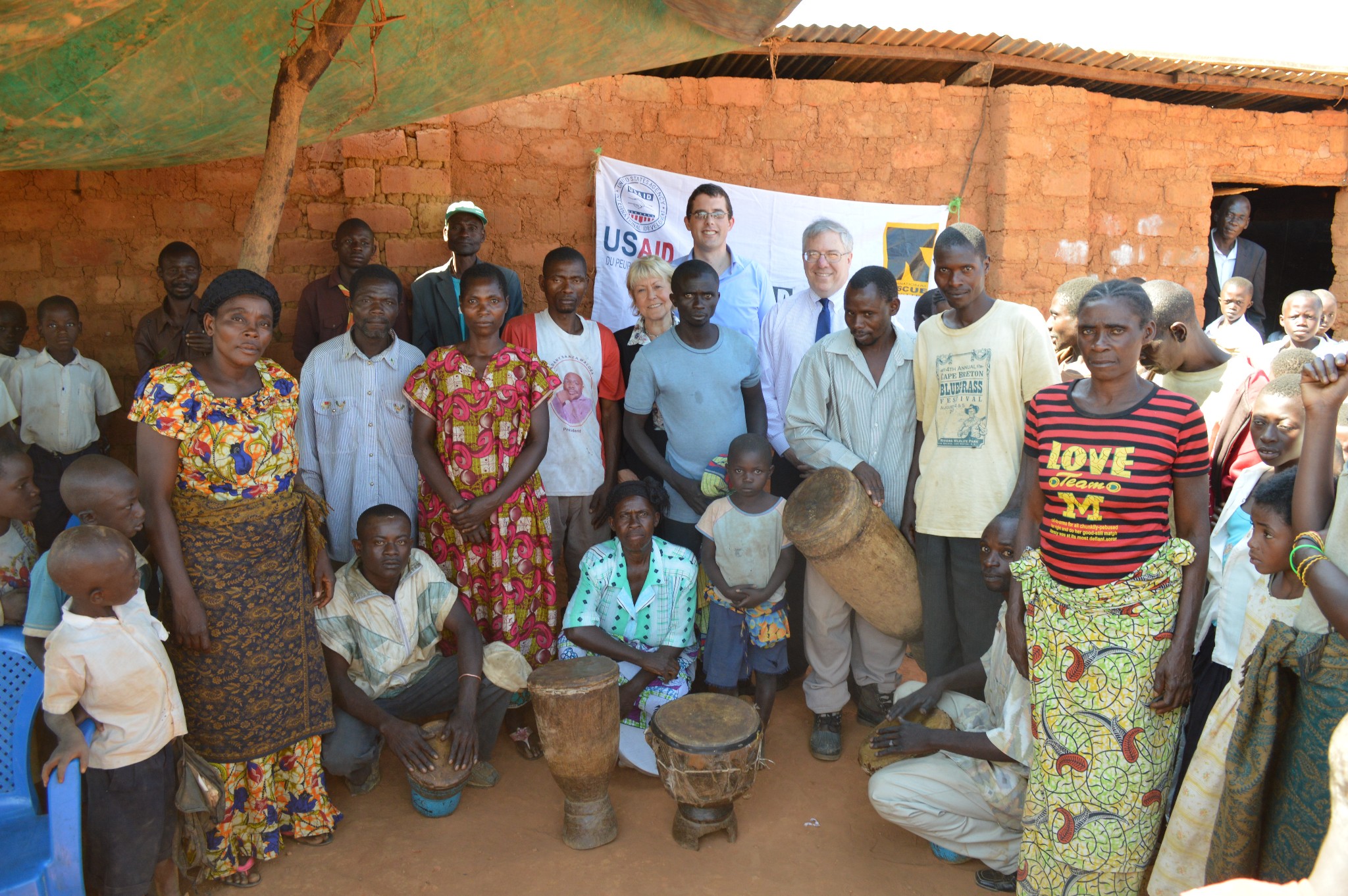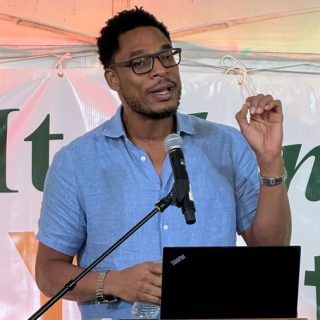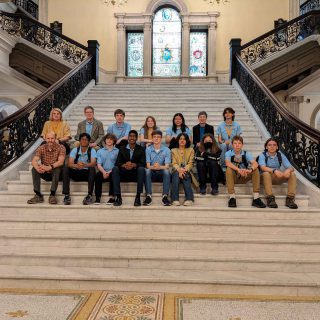USAID workers speak to ‘The Graphic’ about Trump’s catastrophic cuts to their government agency

Established in 1961, by President Kennedy, USAID, or the United States Agency for International Development, has been pivotal in responding to crises worldwide every year since. In addition to human-made and natural crises, USAID has also been a leader in democratization, women’s rights, climate change mitigation, and education.
However, when President Donald Trump cut 5,800 of 6,200 multi-year USAID contract awards, for a total of $54 billion (and 90 percent of all US foreign aid), USAID workers told The Graphic that this threatened everything, as they watched their projects fall apart, with devastating consequences.
These workers, who only wished to speak to this newspaper on the condition of anonymity and who both have ties to Amherst, are referred to here as Sage and Kiera, respectively, both pseudonyms.
According to Sage, the budget for USAID is negotiated annually by elected representatives in the House and Senate. Sage also said that due to terms laid out in the 1974 Impoundment Control Act, the president cannot legally control funding created by Congress, yet he is doing so anyway. Despite a common misconception, only 0.07% of the US budget goes into USAID, representing less than $1 for every $100 an American pays in taxes.
In the late 1990s, Kiera added that USAID became the agency it is today through an act of Congress. The agency collaborates with other countries, contracting out work and providing mutual assistance. There are various sectors within the agency, one being a smaller women-owned organization that focuses on evaluating education globally. This organization promotes girls’ education, encourages reducing school dropouts, and works with school feeding programs.
USAID has lots of overseas contributions, and despite how much goes to them, the United States still benefits significantly. According to Basiced.org, a resource Kiera shared, “children and adults contribute to the economy, feel less need to migrate, reduce crime rates, and improve national security.” Without many of these programs, America’s influence gets tarnished, and farmers lose access to markets, leading an open path to rivalries.
Trump’s budget cuts have scaled back USAID workers from roughly 12,000 to just 600. Recently, on March 28, a notice was sent out to the entire USAID workforce that the reduction will extend further to just 12 people by July 2025. Many programs are suffering, either put on pause or completely erased. Employees were put on immediate administrative leave, and American diplomats were left stationed abroad.
According to an article in Pro Publica, in 2023 that Russell Vought, Trump’s pick for the Office of Management and Budget wanted to “defund” certain independent federal agencies and “demonize career civil servants, which include scientists and subject matter experts.” The article notes that as part of Project 2025’s plan, they would “revive Schedule F, an attempt to make it easier to fire a large swath of government workers who currently have civil service protections,” aligning with Vought’s desire for “the bureaucrats to be traumatically affected.”
In private speeches, he said he wanted these workers, “when they wake up in the morning…to not want to go to work because they are increasingly viewed as villains.” The Trump administration could then even more easily shut down government agencies, said Sage.
In Trump’s first presidency, the agency had been restructured based on his directives, creating new systems that benefited people, so this obliteration of so many USAID initiatives under Trump’s second presidency is shocking, according to both Kiera and Sage.
“[USAID] is falling apart because the administration determined that this work isn’t of any value,” Kiera said. “They wanted to exert the most amount of power and pain on anyone associated with it that they could.”
The dismantling of USAID isn’t only affecting people abroad. Sage said that over 500 metric tons of US-grown commodities have been left to sit in ships and warehouses, unable to continue to their destination because of the freeze and the cancellation of contracts. This is corn, wheat, soy beans, and vegetable oil grown in the United States by American farmers who now stand to lose $2 billion/year in business. Simultaneously, women’s rights are being curtailed, and upholding democracy at home and abroad has become increasingly difficult, she added.
Both women said that Trump is also prohibiting the use of certain words related to gender, diversity, and technical topics by federal agencies and on federal websites, so any work involving gender, diversity, or women is nearly impossible.
Disease control centers are also compromised due to cuts to USAID, causing real concerns about the spread of Mpox (previously known as monkey pox) and Ebola if left unchecked. While Elon Musk, who has taken the lead in the USAID cuts under Trump, has sworn to Congress that funding to Ebola control was never impacted, Sage shared that not a single USAID partner working to control the current Ebola outbreak in Uganda has received payments from the US Government since before Trump’s inauguration. HIV treatments and medications now cannot be funded by USAID or the Centers for Disease Control (CDC), raising concerns that by 2030, we will face a rise in the HIV surge, much like in the 90s and early 2000s.
Staff and partners of USAID are witnessing everything they’ve worked on being lost. At least 166,000 people globally have lost their jobs as of the time of writing, with at least 18,000 of those in America. Beyond their employment, USAID staff and partners are losing the projects they have poured care, energy, and determination into. “I can’t tell you how many times I’ve put all-nighters to finish projects. It’s just as incredible a slap in the face,” said Kiera
People from all over the world who benefit from foreign aid will no longer be able to receive help, Kiera and Sage noted. “With foreign aid, the people who benefit the most don’t have a voice here,” said Kiera. They can’t be seen by those in power in the government. Food, water, shelter, and sanitation all get taken away.
By the time current high school and college students graduate, job availability will decrease massively without the existence of USAID. Science and research fields will have fewer jobs available due to how many were linked to USAID’s contracts.
The future for USAID is unpredictable, Sage and Kiera noted. On March 28, Trump’s appointees sent a notification to Congress informing them of their intention to legally dismantle USAID by the summer, despite the fact that they have already effectively dismantled the entire agency, irrespective of the legal procedures. Sage, Kiera, and USAID supporters remain hopeful that, with a change of laws or strong Congressional leadership, USAID might eventually resume its work. But it’s not as easy as it may seem, as “it’s a lot easier to break stuff than it is to build things back up,” said Sage.
Despite the challenges USAID faces, they said there are ways that students and community members can take action. The website USAIDSTOP-WORK features a petition on its “Resources” page for those who wish to advocate for USAID’s mission. Kiera and Sage also said that many people are also finding and following scripts for calling senators, as well as writing letters advocating for the reinstatement of USAID.














